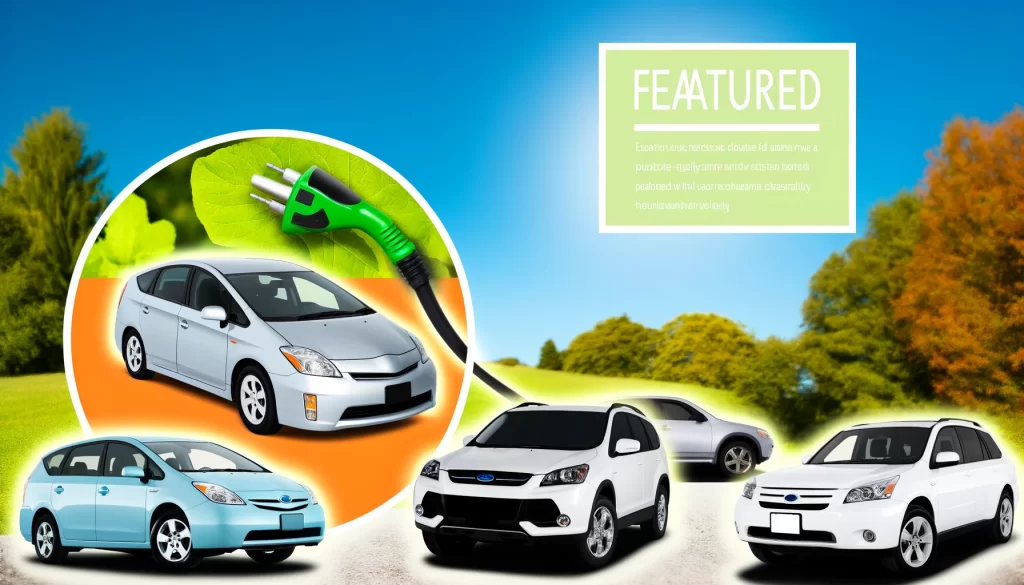In the evolving landscape of the automotive industry, hybrid cars have become an essential bridge between traditional gasoline vehicles and fully electric cars. But what exactly is a hybrid car, and how does it work? In this article, we’ll explore the concept of hybrid cars, their different types, benefits, and how they are shaping the future of transportation.
Understanding Hybrid Cars
A hybrid car combines a gasoline engine with one or more electric motors to improve efficiency, reduce emissions, and offer a versatile driving experience. The gasoline engine and electric motor(s) can work together or independently, depending on the driving conditions and the type of hybrid system.
Types of Hybrid Cars
There are three main types of hybrid cars, each with a unique way of combining gasoline and electric power:
- Mild Hybrid (MHEV):
A mild hybrid car uses an electric motor to assist the gasoline engine, primarily during acceleration and to power auxiliary systems like air conditioning. The electric motor does not propel the car independently. Instead, it provides a boost and allows the gasoline engine to shut off when coasting or idling, improving fuel efficiency.- Example: Audi A6 48V Mild Hybrid.
- Full Hybrid (HEV):
Full hybrid cars have a larger electric motor and battery compared to mild hybrids. They can operate on electric power alone for short distances, using gasoline when needed for longer trips or high acceleration. The gasoline engine charges the battery and powers the vehicle when necessary.- Example: Toyota Prius.
- Plug-in Hybrid (PHEV):
Plug-in hybrids have a much larger battery pack and can be charged via an external power source. They offer an extended electric-only driving range compared to full hybrids and can switch to gasoline power for longer trips or when the battery is depleted.- Example: Ford Escape Plug-in Hybrid.
Key Components of a Hybrid Car
- Gasoline Engine: Traditional internal combustion engine that powers the car directly or charges the battery.
- Electric Motor(s): Powers the car using electricity from the battery, provides regenerative braking, and assists the gasoline engine.
- Battery Pack: Stores electrical energy for the electric motor(s). Battery size varies across hybrid types.
- Transmission System: Manages power distribution between the gasoline engine and electric motor(s).
- Control Unit: Coordinates the interplay between the gasoline engine and electric motor(s).
Benefits of Hybrid Cars
- Improved Fuel Efficiency:
Hybrid cars often achieve better fuel economy than traditional gasoline cars by using electric power and regenerative braking. - Lower Emissions:
Reduced fuel consumption means fewer emissions, contributing to a cleaner environment. - Versatility:
Plug-in hybrids offer the convenience of both electric and gasoline power, providing flexibility for different driving needs. - Regenerative Braking:
Energy generated during braking is captured and stored in the battery, reducing waste. - Tax Incentives and Rebates:
Many governments offer incentives for buying hybrid cars, reducing their overall cost.
Common Myths About Hybrid Cars
- Myth: Hybrid Cars Are Slow.
Fact: Modern hybrids offer impressive acceleration thanks to the instant torque of electric motors. - Myth: Hybrid Batteries Need Frequent Replacement.
Fact: Most hybrid batteries are designed to last 8-10 years or more, with warranties covering up to 100,000 miles. - Myth: Hybrid Cars Are Expensive.
Fact: While hybrids can have a higher upfront cost, fuel savings and incentives often offset the initial expense.
Popular Hybrid Cars
- Toyota Prius (Full Hybrid): Known for its exceptional fuel economy and reliability.
- Honda CR-V Hybrid (Full Hybrid): Offers spaciousness and fuel efficiency in an SUV format.
- Hyundai Ioniq Plug-in Hybrid (PHEV): Combines practicality and an electric-only driving range of up to 29 miles.
- Ford F-150 PowerBoost (Full Hybrid): The world’s first hybrid pickup truck, combining power and efficiency.
Conclusion
Hybrid cars represent a practical solution for those seeking to reduce their carbon footprint without compromising convenience or flexibility. With a combination of gasoline and electric power, they offer improved efficiency, lower emissions, and a stepping stone toward full electrification. Whether you’re considering a mild, full, or plug-in hybrid, understanding the various types and benefits will help you find the right hybrid vehicle for your needs.

